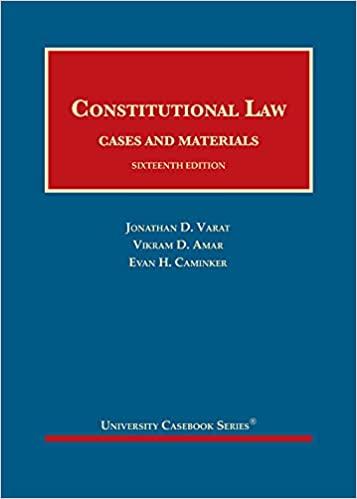Question
Stella Liebeck, an elderly grandmother, received third-degree burns when she spilled coffee purchased at a McDonald's drive-through. At trial, experts testified that McDonald's coffee was
Stella Liebeck, an elderly grandmother, received third-degree burns when she spilled coffee purchased at a McDonald's drive-through. At trial, experts testified that McDonald's coffee was too hot to be consumed at the point of purchase, was hotter than any other restaurant's coffee or coffee brewed at home, and was so hot that third-degree burns would result within three to five seconds of coming into contact with the skin.
McDonald's also conceded that the coffee was brewed extremely hot for commercial (profit) reasons, because most customers wanted coffee to be hot throughout their commute. After finding the company liable, the jury awarded Mrs. Liebeck two days' worth of coffee sales at McDonald's, an amount equivalent to $2.7 million, in punitive damages. The award, although reduced to much less than that, set off a firestorm of criticism that has not died down to this day. Hence, now why your coffee cups say "Caution Hot".
Do you believe that it's possible for coffee to be unreasonably dangerous? Find this information through the internet and write your answers and cite your sources.
- What was the tort committed here?
- Was there duty owed?
- Do you believe that the jury's award of $2.7 million for third-degree burns was excessive?
- Why do you believe that such an award is necessary?
- Can you identify any standards which have changed in the industry based upon this case?
- What ethical issues come to mind when you think of this case?
Step by Step Solution
There are 3 Steps involved in it
Step: 1

Get Instant Access to Expert-Tailored Solutions
See step-by-step solutions with expert insights and AI powered tools for academic success
Step: 2

Step: 3

Ace Your Homework with AI
Get the answers you need in no time with our AI-driven, step-by-step assistance
Get Started


